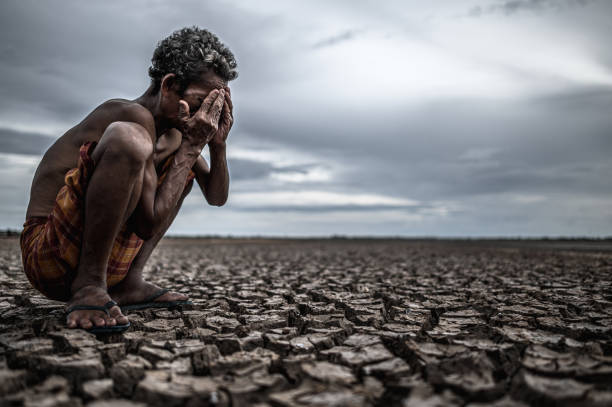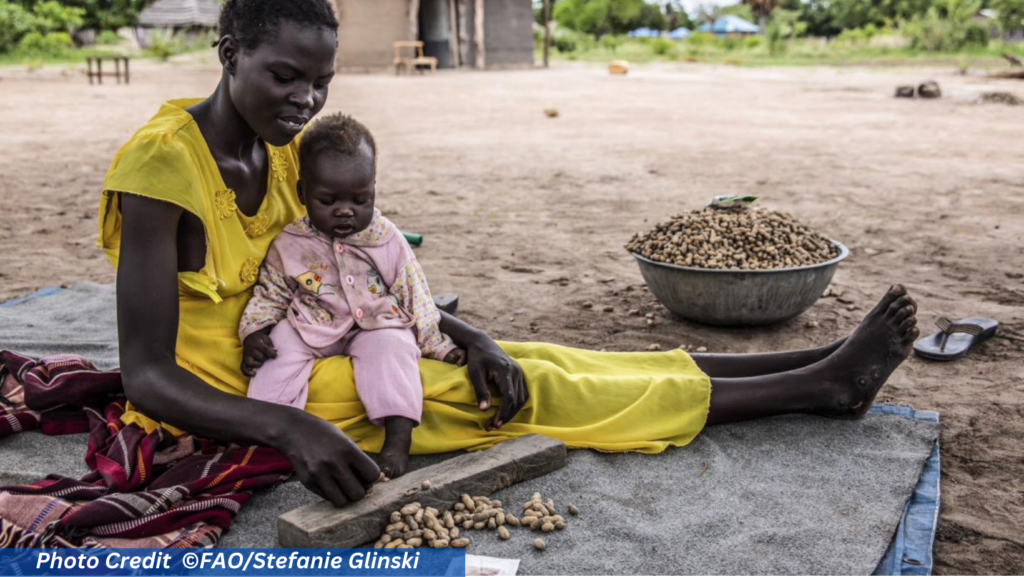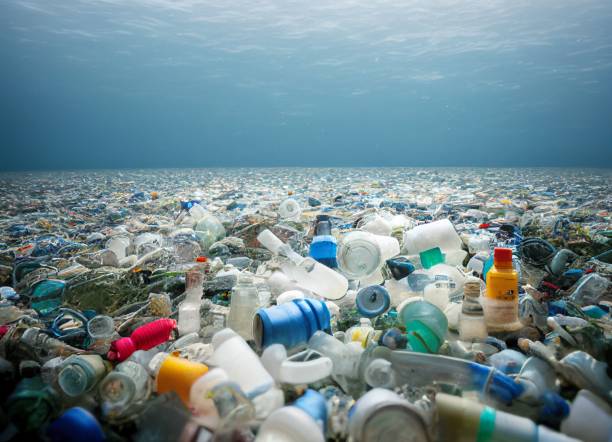A record number of 120 million people forcefully displaced by conflict and persecution
Geneva/New York, June 19, 2024 – The number of people fleeing war, violence and climate extreme has reached its highest last year and this year as the international community celebrates World Refugee Day (June 20) to recognize their “remarkable fortitude and capacity for renewal, despite the daunting challenges they face,” the chief of the UN refugee agency said.
“The picture is rarely as desperate as where I am now, in Jamjang, South Sudan,” said Filippo Grandi, the UN High Commissioner for Refugees (UNHCR) on his second visit to Sudan since the outbreak of the war in April 2023.
“The level of suffering is truly unconscionable,’’ said Grandi. “Sudan is the definition of a perfect storm: shocking human rights atrocities, with millions uprooted by this insane war and other wars that came before it. A terrible famine is looming, and severe floods will soon hamper aid deliveries even more. We are losing a generation to this war, yet peace efforts are not working.”
“We live in a world where conflicts are left to fester. The political will to resolve them seems utterly absent. And even as these crises multiply, the right to seek asylum is under threat. To make matters worse, the global effects of climate change take an ever more devastating toll – including here, where severe flooding is expected to submerge villages and farmlands, adding to South Sudan’s woes.”
The UN and humanitarian organizations said fierce fighting between rival armies in Sudan has displaced the world’s largest number: 9.5 million with 1.9 million of them spilled into neighboring countries while the rest are internally displaced.
UNHCR and the Norwegian Refugee Council said the total number of internally displaced people swelled to nearly 120 million this year at a time support both financial and humanitarian for the refugees has dropped leaving the refugees in desperate situations. Those humanitarian organizations decried the failure by the international community to resolve long-standing crises and ongoing wars that currently resulted in record number of displaced people.
The Geneva-based UNHCR said in its 2024 Global Trends Report that the increase in displaced people to 120 million by May 2024 was the 12th consecutive annual increase and reflects both new and mutating conflicts and a failure to resolve long-standing crises.
The report said key factors responsible for the millions of refugees included fighting in Sudan with 10.8 million Sudanese uprooted and millions others were uprooted by fighting in the Democratic Republic of the Congo and Myanmar. UNRWA, the agency providing humanitarian assistance to Palestinians estimated up to 1.7 million people (75 per cent of the population) had been displaced in the Gaza Strip by violence in 2023. The report said Syria remains the world’s largest displacement crisis, with 13.8 million forcibly displaced in and outside the country.
The refugee agency said the largest increase in displaced people came from people fleeing conflict who remain in their own country, rising to 68.3 million people according to the Internal Displacement Monitoring Centre – up almost 50 per cent over five years.
Jan Egeland, Secretary General of the Norwegian Refugee Council, said on the new global displacement figures: “Never before in recorded history have so many people in so many countries been fleeing conflict, violence, and persecution. Every year for more than a decade, we have documented new record numbers of both refugees and those internally displaced due to the brutality of armed men, faltering conflict resolution diplomacy, and global failure to protect civilians. New wars and emergencies are added to all the unresolved crises, resulting in more than 117 million people facing desperate situations.“
“This year’s figures represent yet another failure of international solidarity and coordination. As the number of those requiring help increases, we see both humanitarian and developmental funding dropping. Vast crises – such as in DR Congo, Sudan, or the Central Sahel region – continue to go unnoticed by both media and donors. “
UNHCR said the global refugee population increased by 7 per cent to reach 43.4 million in 2024. The number includes 31.6 million refugees and people in a refugee-like situation and 5.8 million other people in need of international protection under UNHCR’s mandate, as well as 6 million Palestinian refugees under UNRWA’s mandate. Compared to a decade ago, the total number of refugees globally has more than tripled.
The largest proportion of refugees globally were from Afghanistan and Syria, both with 6.4 million each, and together equivalent to one-third of all refugees under UNHCR’s mandate. These were followed by Venezuela (6.1 million refugees and other people in need of international protection) and Ukraine (6.0 million refugees).
Most refugees remain near their country of origin, with 69 per cent hosted in neighboring countries at the end of 2023. Low- and middle-income countries continue to host the majority of the world’s refugees, with 75 per cent of refugees living in low- and middle-income countries.
United Nations journalists – United Nations journalists – United Nations journalists
United Nations News – United Nations News – UN Correspondents Association – UNCA Awards
A record number of 120 million people forcefully displaced by conflict and persecution Read More »










